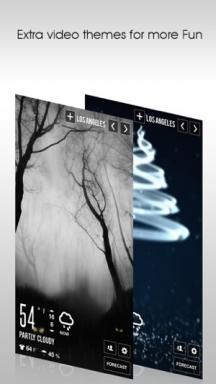Most side effects of COVID-19 vaccines linked to the nocebo effect
Miscellaneous / / January 19, 2022
When knowing the possible consequences increases the likelihood of a negative reaction.
A meta-analysis of data from 12 trials of COVID-19 vaccines showed that up to three-quarters of all adverse events reported after vaccination can be attributed to the nocebo effect. This is stated in the latest research, published by a group of scientists in the journal JAMA Network Open.
The nocebo effect is the opposite of a placebo, when a drug that does not have a real pharmacological effect causes a negative reaction in the patient.
Adverse events after placebo treatment are common in randomized controlled trials. Collecting systematic data on these nocebo reactions in vaccine trials is important for COVID-19 vaccination across the board world, especially as concerns about side effects are causing hesitation about vaccines.
Julia Haas
lead author of the study
The scientists' study looked at data from vaccine trials involving more than 45,000 people. More than 35% of those who received placebo reported systemic side effects after the first dose, including fever, headache and fatigue. In groups with a real vaccine, this was 46%.
After the second dose of placebo, systemic side effects were reported by 32%, and in the vaccine group, complaints were already in 61% of patients. This suggests that actual side effects are slightly more common after the second dose of the vaccine. However, the researchers still calculated that about 50% of the side effects after the second vaccination can be attributed to the nocebo effect.
“Non-specific symptoms such as headache and fatigue, which we have shown to be particularly sensitive to nocebo, are listed in many information brochures among the most common adverse reactions after vaccination against COVID-19.
Evidence suggests that this kind of information can lead people to misattribute ordinary, everyday backgrounds. sensations as if they were due to a vaccine, or will cause anxiety and restlessness that will cause people to become more vigilant about their bodily sensations.
Ted Kapchuk
senior author of the study
Ted Kapchuk, who has studied the placebo effect for many years, notes that informing people about possible side effects before vaccination can increase the nocebo reaction. However, this does not mean that you need to hide the possible consequences from the patient.
Medicine is based on trust, and informing the public about the possible nocebo effect on the contrary can help reduce people's fears and hesitations about vaccinations, the scientist added.
As a conclusion, the authors of the study notethat more attention should now be given to improving communication strategies with patients. Ultimately, this could improve treatment outcomes and reduce public distrust of vaccines around the world.
Read also🧐
- What are the coronavirus vaccines and how do they differ from each other
- What is revaccination against coronavirus and why is it needed
- 18 answers to the most popular questions about the coronavirus vaccination



